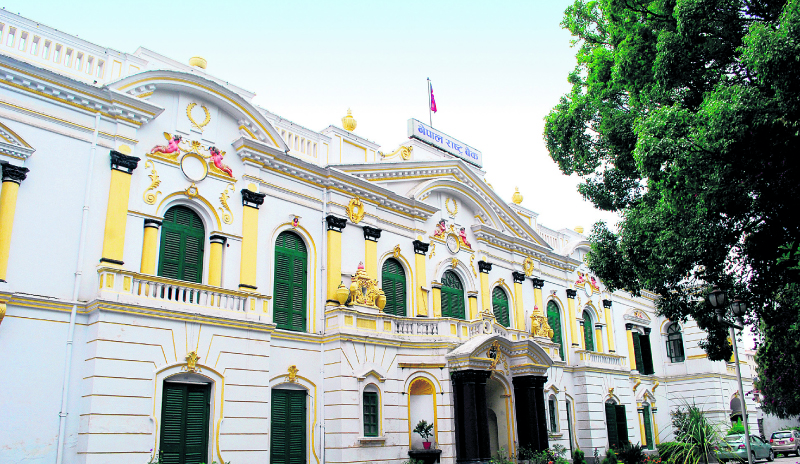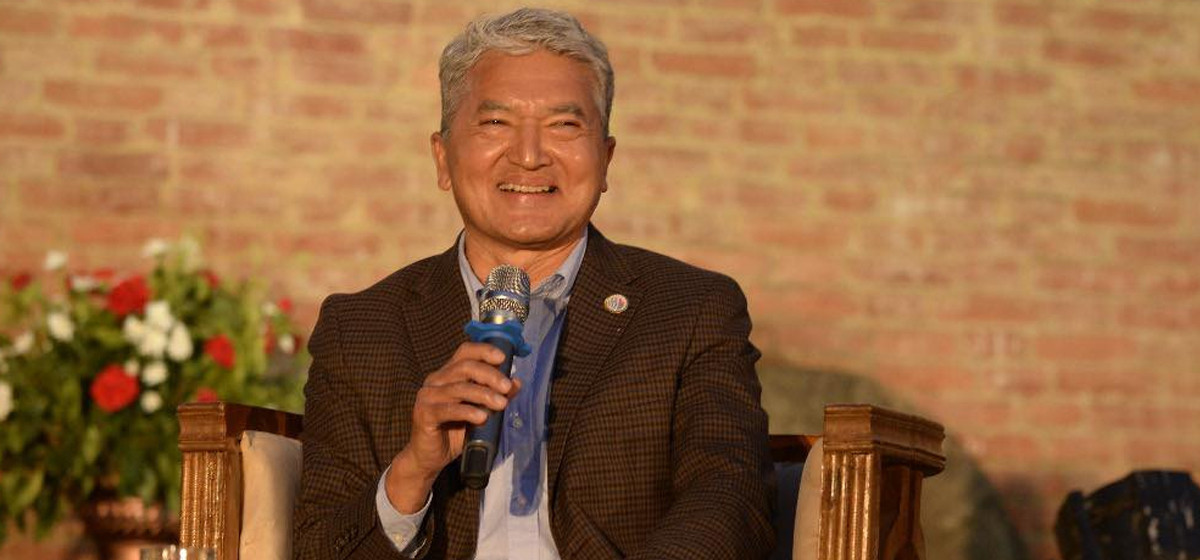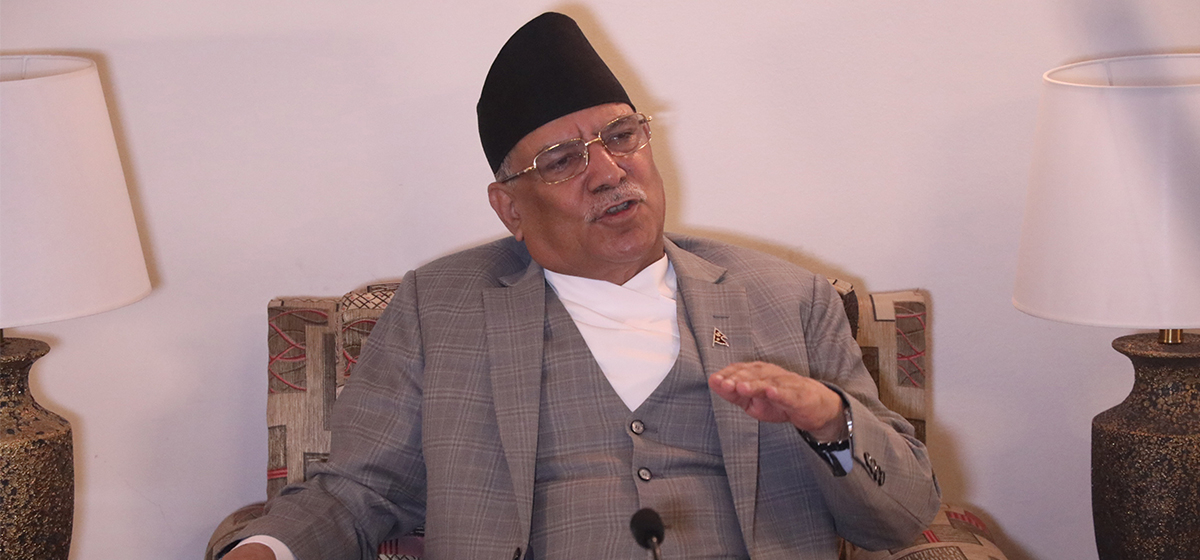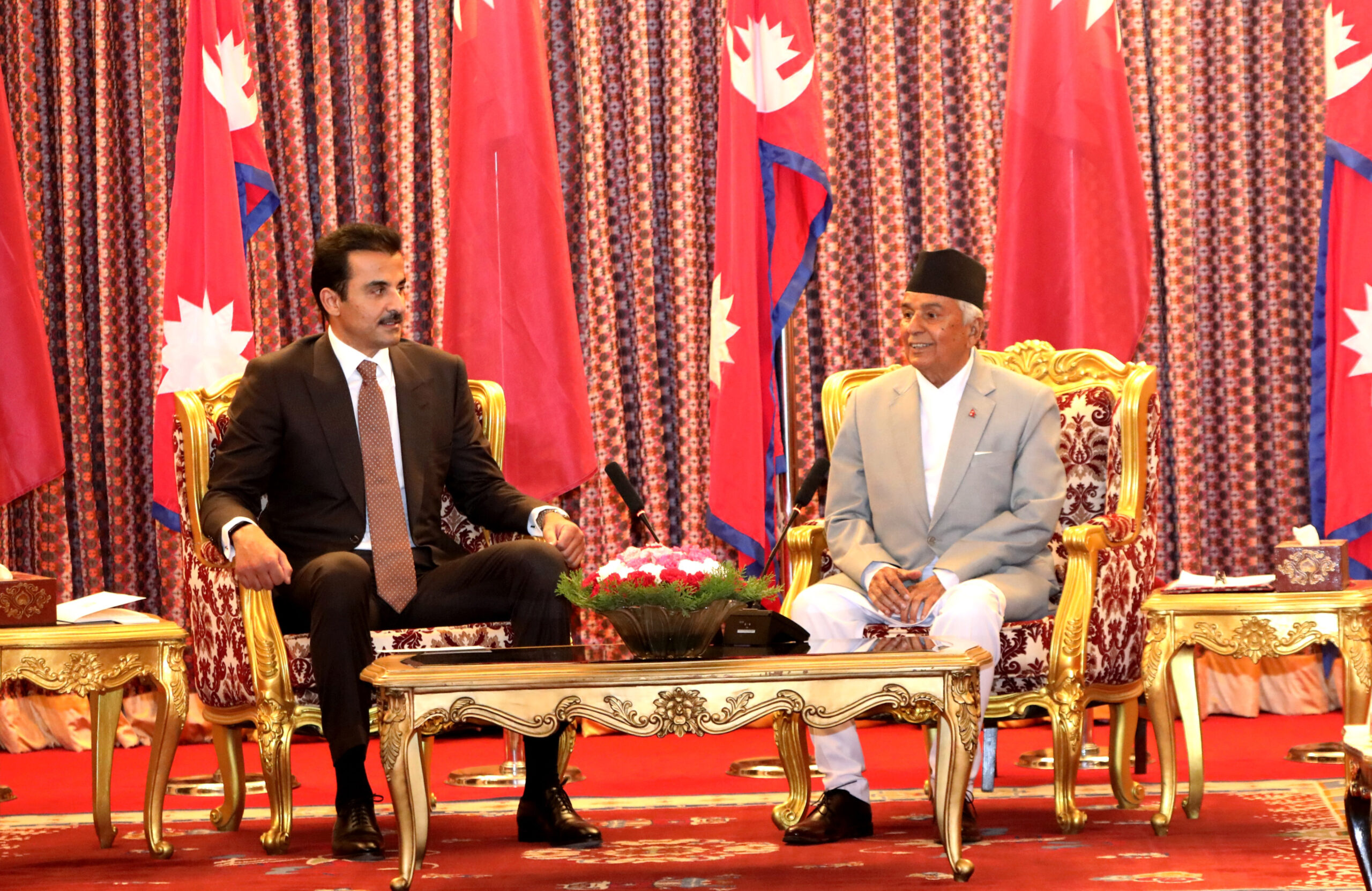
OR
Banks to enjoy business monopoly in local units for 3 years
Published On: June 5, 2017 12:00 AM NPT By: Sagar Ghimire | @sagarghi

NRB says local unit can have another bank branch only after three years
KATHMANDU, June 5: A commercial bank, which becomes the first financial institution to open its branch office in rural municipality, will now enjoy business monopoly in that local unit for three years.
The central bank on Friday decided to allow commercial banks to open their branch offices in each rural municipality under 'first-come-first-served' basis, and restrict another bank to go to the same place for three years.
The decision comes in line with the demand from bankers to restrict presence of another commercial bank if there is already one in the same rural municipality. The central bank issued a notice, laying out policies to encourage commercial banks to open their branch office in each local unit, following a meeting among its two deputy governors, president of Nepal Bankers Association (NBA) and CEOs of commercial banks held at the NRB office on Friday.
Denying suggestions that the decision would perpetuate monopoly of a single bank, the central bank officials argue that such policy provision would instead curb 'unhealthy competition' in the banking industry.
“It was a demand placed by banks. They told us that there should not be any unnecessary and unhealthy competition in rural local units,” Narayan Prasad Paudel, an executive director of the NRB, said. “In a situation where we have to plead banks to go to provide their services in the unbanked areas, you should understand the spirit rather than terming the practice as a monopoly,” Paudel, who heads the Banks and Financial Institution Regulation Department of the NRB, said.
According to Paudel, the restriction would not be in effect in local units where commercial banks are already present. The central bank has taken a policy to encourage commercial banks to go to other remaining local units where neither the government-owned banks, nor the private ones are present.
According to an estimate, three-government owned banks including other private banks have their branch office in nearly 350 out of 744 local units.
Anil Keshary Shah, the president of NBA, told Republica that the association plans to hold a meeting of bankers on Monday to discuss which bank wants to go in which local unit. Shah said that the association requested the central bank not to allow another commercial bank to open its branch in the same rural municipality for at least three years. “Banks are positive to go to places where the government is yet to reach. The business opportunities could be limited in such areas where there are only few thousand people,” Shah, who is also the CEO of Mega Bank Ltd, said. “It's about promoting healthy competition rather than creating monopoly.”
The branch office at the local unit will not only get business from the private sector, but also handle the government transactions.
The central bank has also made commitment to make necessary arrangement for providing all government transactions at the rural municipality to the branch office of the commercial bank reaching there.
A rural municipality will mobilize of up to Rs 390 million in equalization grant for the coming fiscal year 2017/18 which will flow through the banking system. According to the central bank's decision, the branch office will have a monopoly on handling these government transactions.
Shah said that the banks will be interested to open their branch office in these unbanked rural municipality if the government sets up basic infrastructure like electricity, roads, police security and health post, among others.
In its notice, the central bank has also said that it could instruct any bank to open its branch office in any rural municipality. The central bank's lead to prod commercial banks to go to each local unit comes in the wake of the announcement made by the Minister for Finance Krishna Bahadur Mahara in his first federal budget speech last week to make arrangement to get a branch office in each local unit.
You May Like This

Finance Ministry vows to facilitate banks to open branches in local units
243 local units yet to see presence of commercial banks ... Read More...

Commercial banks unlikely to reach all local units by fiscal year-end
POKHARA, May 10: The government's plan of taking commercial banks to all local units is unlikely to materialize in the current... Read More...

Infrastructure key to send banks to local units: NRB boss
POKHARA, June 17: Nepal Rastra Bank (NRB) Governor Chiranjibi Nepal has said that commercial banks won’t go to local units unless... Read More...





Just In
- Nepalgunj ICP handed over to Nepal, to come into operation from May 8
- Nepal to gift two elephants to Qatar during Emir's state visit
- NUP Chair Shrestha: Resham Chaudhary, convicted in Tikapur murder case, ineligible for party membership
- Dr Ram Kantha Makaju Shrestha: A visionary leader transforming healthcare in Nepal
- Let us present practical projects, not 'wish list': PM Dahal
- President Paudel requests Emir of Qatar to initiate release of Bipin Joshi
- Emir of Qatar and President Paudel hold discussions at Sheetal Niwas
- Devi Khadka: The champion of sexual violence victims



_20240423174443.jpg)










Leave A Comment